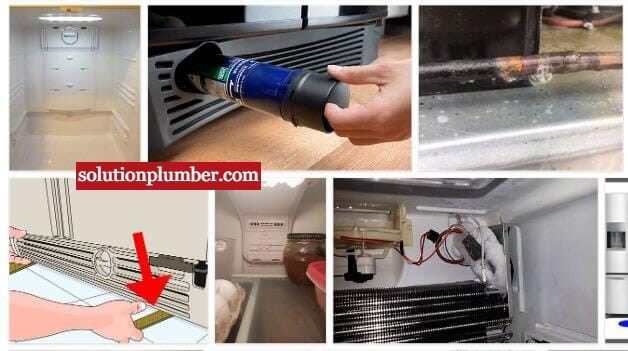A leaking refrigerator is one of the most unpleasant problems. Cleaning up a small puddle is simple, but having to do so every time you enter the kitchen is a duty you don't need to add to your to-do list. Furthermore, water that isn't visible and isn't removed sits on the floor. It appears to be harmless at first, but it eventually causes mold to grow, causing damage to any wood flooring or sub-floor underneath.

You want your refrigerator to stop leaking so you don't have to clean up puddles or risk costly long-term damage. Unfortunately, because refrigerators deal with ice, water, and condensation, a leak can result from a variety of factors. Fortunately, not all of them need major repairs, and all of them are simple to investigate.
WHAT’S CAUSING MY REFRIGERATOR TO LEAK AND HOW TO STOP IT?
TILTING THAT ISN'T QUITE RIGHT
The level of your refrigerator should not be the same as your floor. To maintain the coolant working properly and, in some situations, to have the door swing shut automatically, it requires a tiny backwards inclination. The back of the refrigerator should be around 14 to 12 inches closer to the ground than the front.
If you've recently relocated your refrigerator or finished renovations, it could be slanted incorrectly or too close to level to drain properly. A spirit level, put perpendicular to the doors on the top of the refrigerator, may readily verify this.
DRAIN PAN IS DAMAGED
A refrigerator leaks water naturally, but it's meant to collect in a pan beneath the refrigerator where it may safely evaporate without getting your floor wet. Although it's unusual for this pan to develop holes or cracks, it's possible that this is one of the causes of a leak. Here's how to check for and repair this issue.
- Remove the grille or kick plate from the fridge's bottom front.
- Identify the huge, flat pan in the refrigerator's bottom shelf.
- Carefully remove the pan (keeping in mind that it may be wet) and inspect it for damage.
- If the pan is broken, take it to a hardware store to get a replacement or look for one on the manufacturer's website.
DEFROST DRAIN IS CLOGGED
There's a hole in the freezer compartment's bottom back wall that lets damp air out. The fridge condenser coils will have to work overtime and start dripping water if this drain becomes blocked, whether by a stack of objects in the freezer or debris clogging the line. Here's how to find and fix the issue.
- Remove any frozen food items that are covering the defrost drain. Make a clear channel from the drain to the ceiling and wait a day to see if the problem goes away.
- If the puddles persist, empty the freezer, disconnect it, and remove the defrost drain lid.
- Pour warm water into a turkey baster and pour it down the drain. This should unfreeze any obstructions in the line, allowing you to use the refrigerator again. Over the next few days, you may need to manually clear the drain pan.
- If no additional water drains from the defrost drain, the clog may still be present. Unplug the refrigerator, take it away from the wall, and manually inspect the drain line. This is the line that connects the freezer to the fridge's underside. Use a pipe cleaner or a bottle brush to plug it.
WATER SUPPLY LINE IS FROZEN

The water line that supplies your refrigerator's ice maker or water dispenser may be clogged or frozen. Checking this tube is important, maybe this is the cause of why your refrigerator is leaking water. Below are the steps how to check it;
- Remove the refrigerator from the wall by unplugging it. The water supply line, which is usually composed of clear, flexible plastic or braided metal, should be located.
- Tighten the connecting points with a crescent wrench if there is indication of a leak around them. Reconnect everything and check for drips again in an hour.
- If the connections are secure but there are still leaks, the water line may need to be replaced totally. Close the water supply pipe between your house and your refrigerator.
- Remove the water line and take it to the store with you to get a replacement.
If you are still in trouble to fix you refrigerator leak water, visit How To Stop Refrigerator Water Leaks to find whats wrong on your fridge and how to fix it.
Even if you've ruled out all the obvious suspects, there could still be an electrical issue. Alternatively, the actual problem could be anything as simple as a compressor start relay, which may be beyond your DIY abilities. When you've ruled out all other possibilities for the leak, call a plumber.